How to Avoid Scars After Facelift Surgery
2025-04-21
Why Facelift Scars Matter More Than You Think?
While facelift surgery is often chosen to correct deep smile lines and jowls, one of the most overlooked outcomes is visible scars or ear deformities left behind by poor surgical technique.
In this article, we would like to share some insights to avoid facelift scars and side effects.
Why Do Facelift Scars Happen?
Temple area: Poorly Placed Incisions
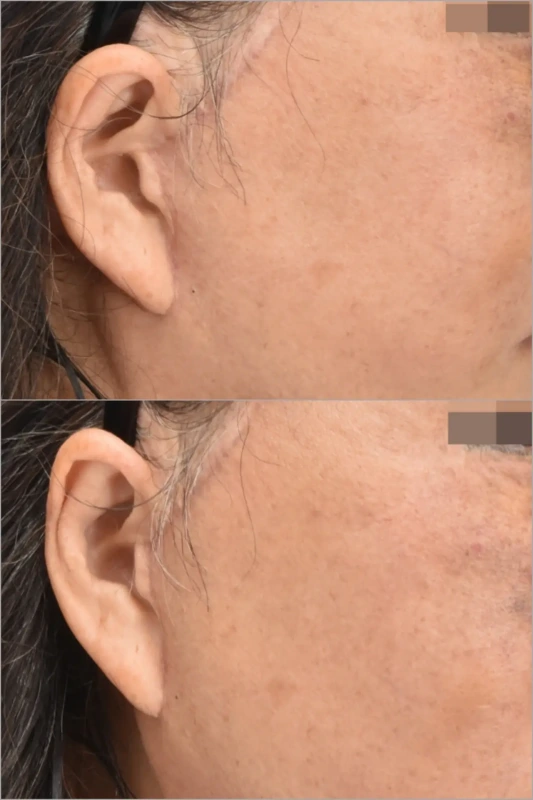
There are two kinds of incision placement in the temple area as seen below.
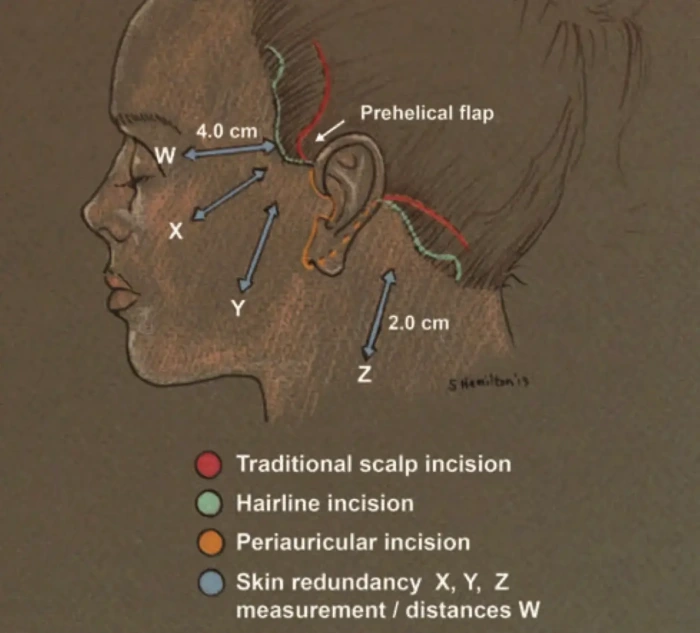
(from Aesthetic Rejuvenation of the Face and Neck)
The traditional scalp incision can shorten the sideburn or alter the natural hairline, especially in patients who require more lifting.
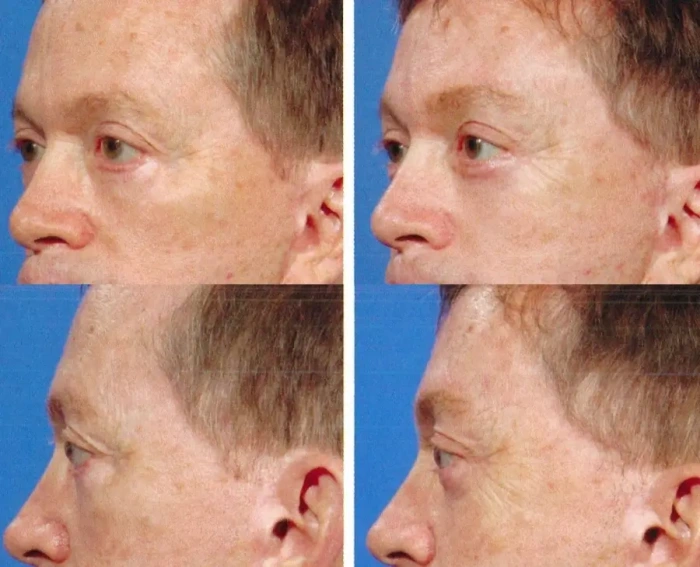
(from Facelift Letdown)
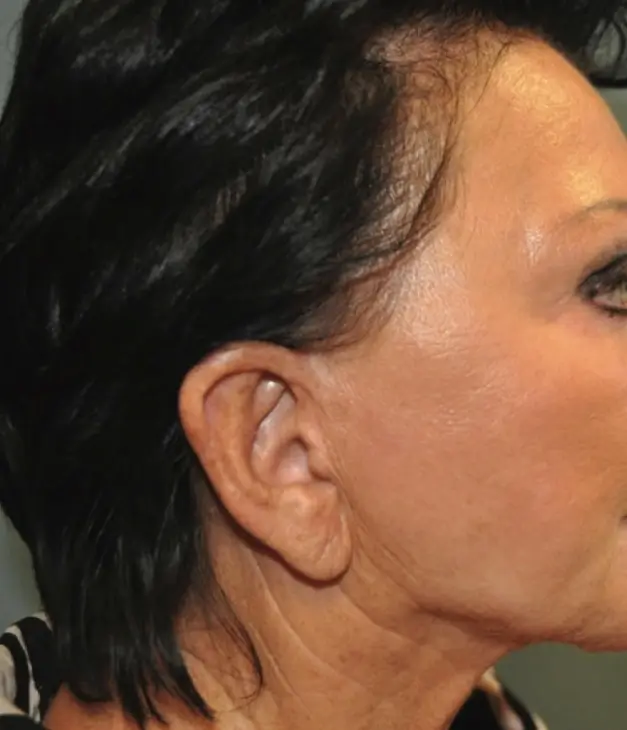
(from Aesthetic Rejuvenation of the Face and Neck)
Instead, placing the incision along the sideburn can look more visible at first—but looks more natural without needs for hair graft if done by proper surgeon.
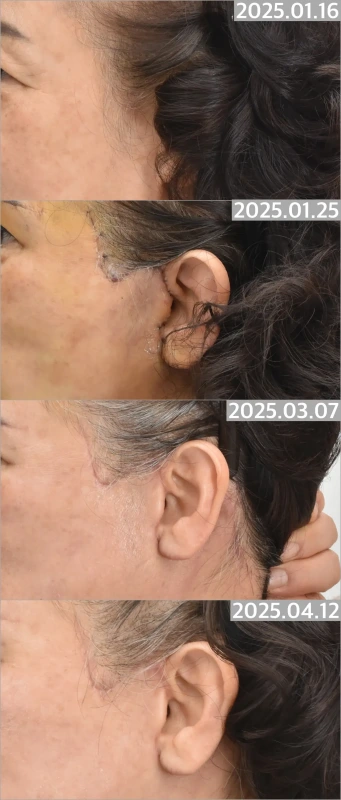
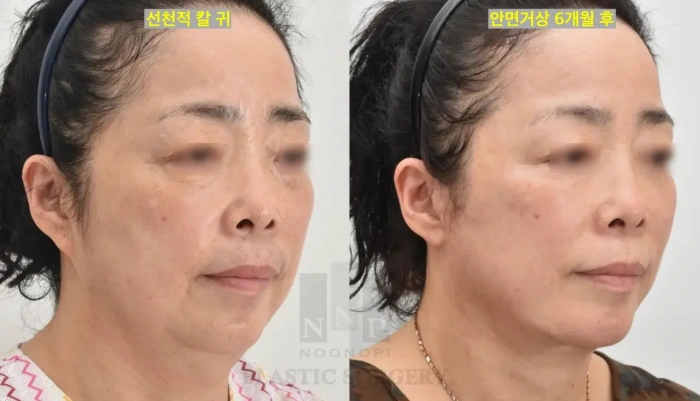
In Front of the Tragus (Ear Cartilage)
There are two choices for incision infront of the ear: retro-tragal vs pre-tragal
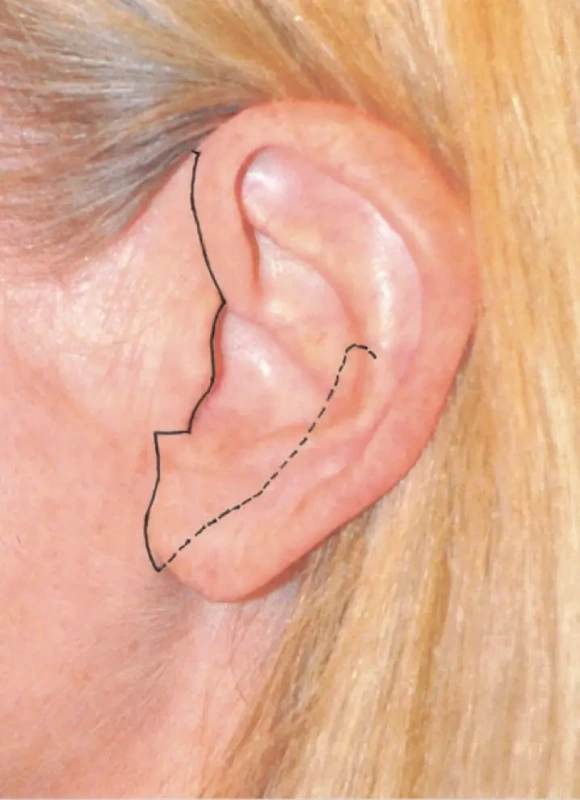
When the incision is placed in front of the tragus, it might results visible scarring.
Even with minimal scarring by skilled surgeons, most patients experience some degree of color mismatch from the ear to the cheek if ‘in front of the tragus’ incision are done. This is why many experts use retro-tragal method.
Even though the scar may less visible with pre-tragal incision, the color mismatch can results - which most people has; from ear to cheek.
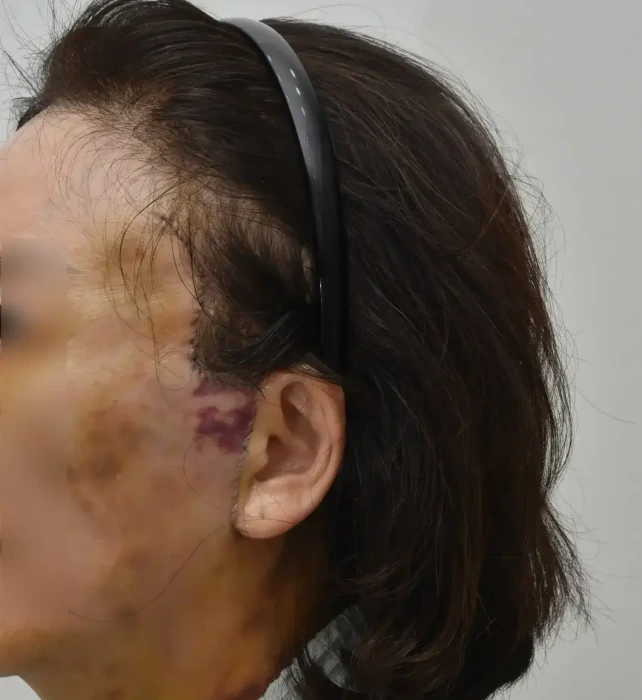
Behind tragus incision also has pitfalls; it may flattens the natural ear cartilage contour if done by less-trained hands.
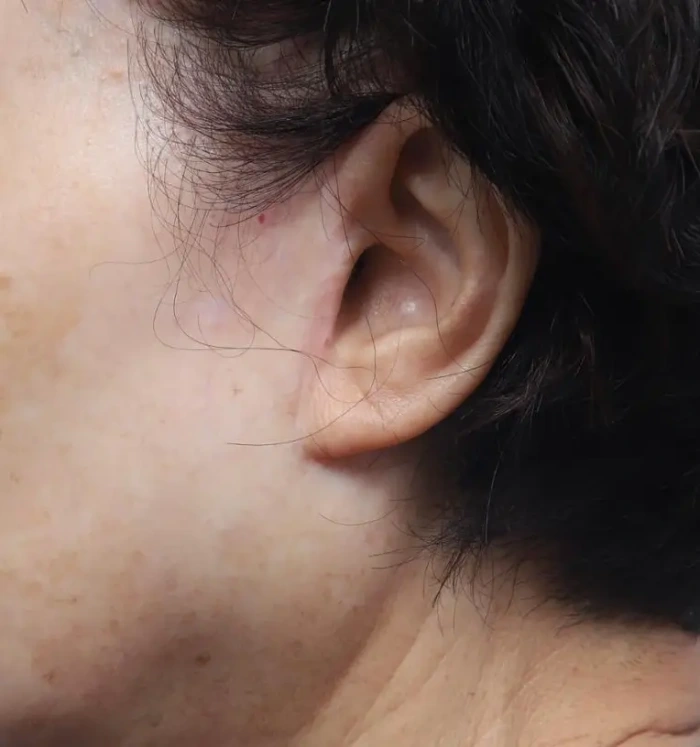
Behind the Ear: How Far Should It Go?
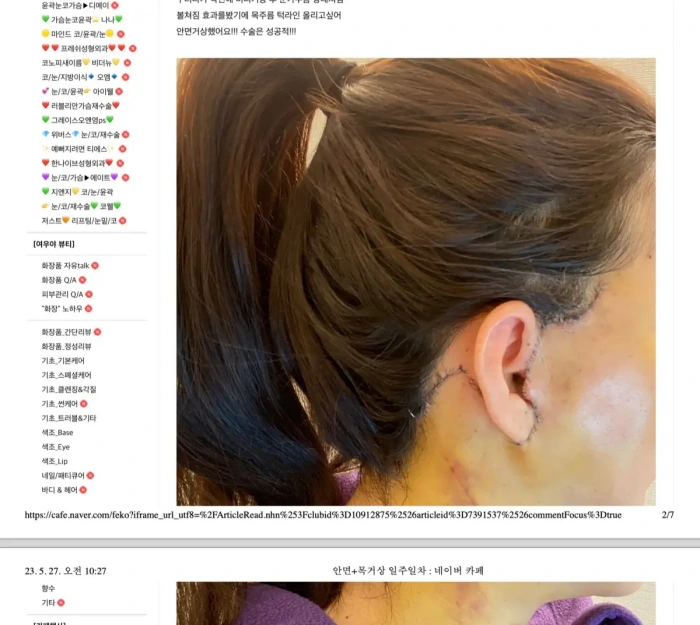
Placement of the behind ear incision is where many surgeon might get inattentive. If the incision does not go high enough as shown above the photo, patients may not pony tail her hair forever due to visible scars.
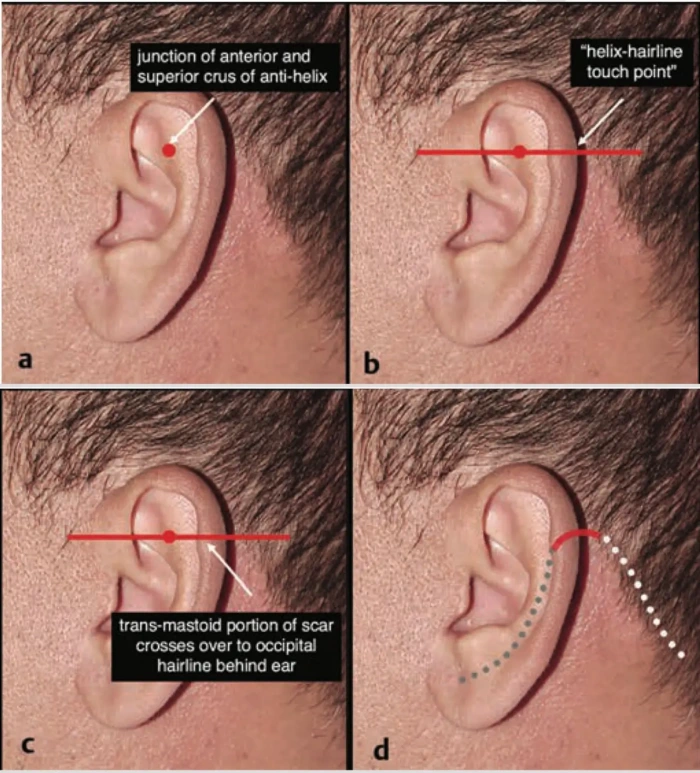
That's why experts suggest the incision should rise to where the ear helix meets the hairline (helix-hairline touchpoint), then move horizontally. Though it takes longer time for wound closure, it hides the scar more effectively.
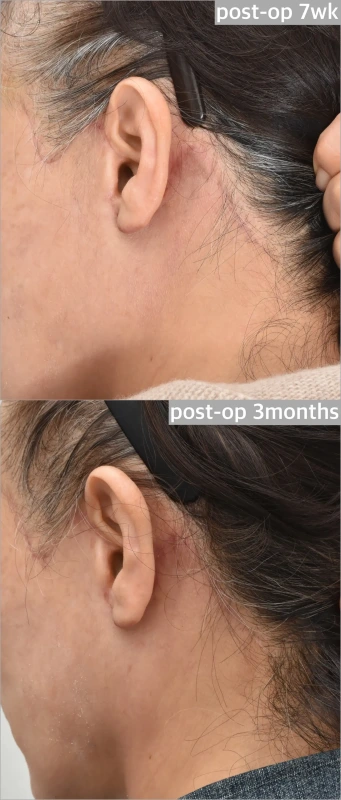
How to Prevent “Pixie Ear” (Pulled Ears After Facelift)

Pixie ear is when the earlobe is unnaturally pulled downward after surgery. It often occurs due to over-pulling the skin.
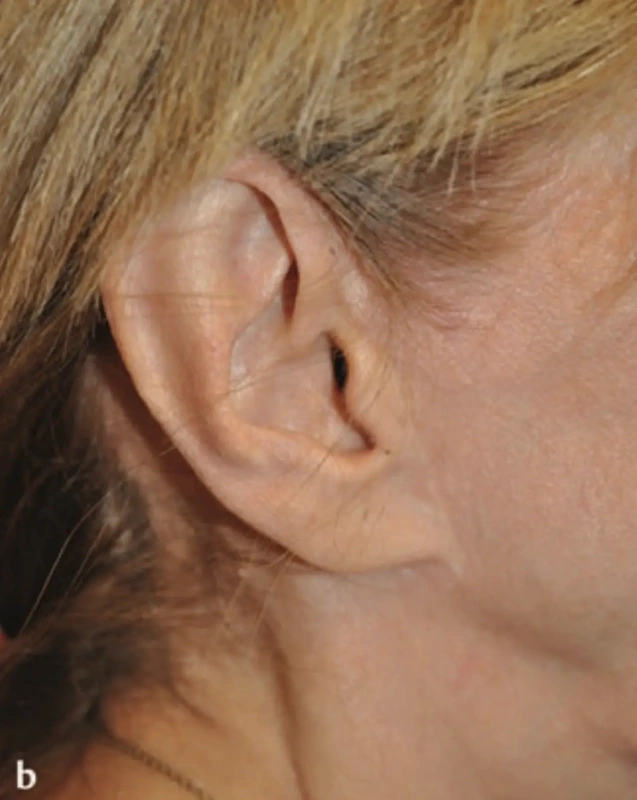
While an attached earlobe deformity may seem less conspicuous than a pixie ear, it is still perceived as unnatural by those with a discerning eye.
These complications may require revision facelift or earlobe correction surgery.
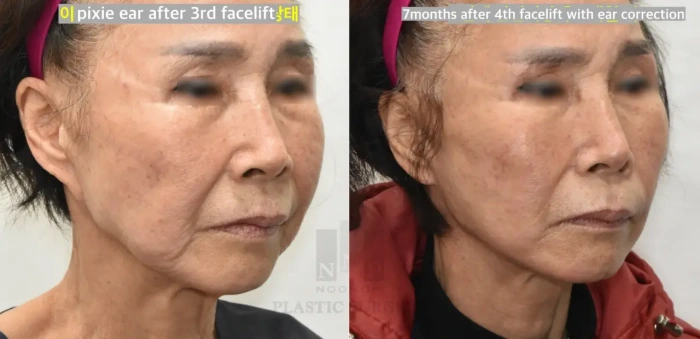
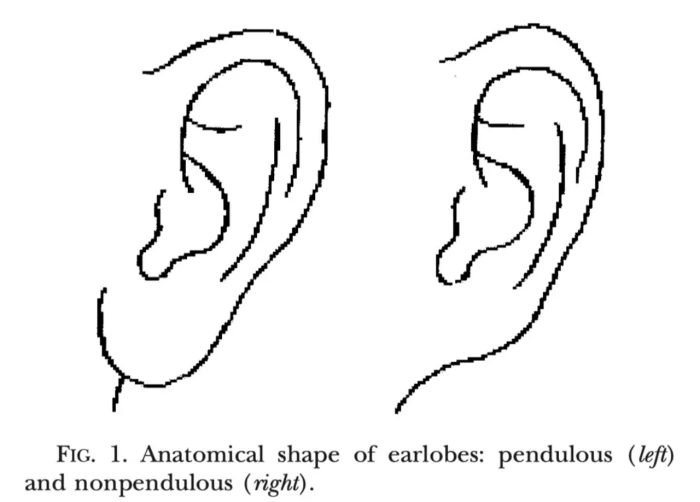
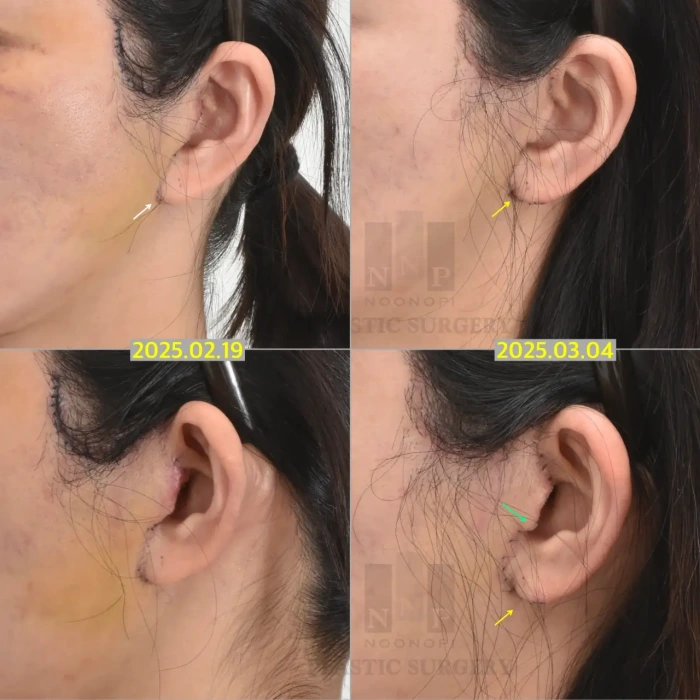
What Does a Successful Facelift Look Like?
True success is natural, scarless-looking, and harmonized with the patient’s face. Even with great lifting, visible scars or pulled ears can ruin the result.
📌 At Noonopi Plastic Surgery, we prioritize more than skin tightening.
We plan every incision with care, ensuring your results look beautiful and discreet—without giving away that you had surgery at all.
Ready to learn more? Chat with us on 🔗WhatsApp
Noonopi Plastic Surgery | Dr. NK Park
This blog post is for educational purposes only.
All treatments carry individual risks and individual results may vary.
Please consult with a certified professional.

